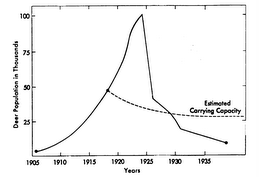Biology plays a ‘behind the scenes’ role in all human endeavors, whether that would be conquering a nation, building an empire, or simply fighting to survive. Although not known to the world before our technological advancements, Biology gave the European empires a crucial edge, which helped them conquer the new world. These unknown super weapons, such as Francisco Pizarro’s deadly small-pox or Columbus’s malaria and typhus, wiped out over 80% of the indigenous people in the new world. Other critical advancements of the Europeans such as: farming techniques, a form of central government, and Europe’s vast fertile farmland paved the road toward Eurasian societies’ domination of the whole world. Biology gave Eurasian societies the crucial edge needed for global supremacy.
The domestication of plants for human benefit propelled Eurasian society. The many crops found around the Mediterranean and throughout the Fertile Crescent, 57 in all, gave the Europeans a variety of plants in which interbreeding was possible. As domestication began to take place, humans evolved from a hunter-gatherer society to an agricultural community. At this point in time, around 10,000 to 5,000 years ago, humans began to settle down and experiment with different plants to try and make a more suitable crop for consumption. Farmers first planted the bottle gourd but a thousand years later, came up with the cereal crops we know nowadays as wheat. Plant and animal interbreeding, however, can have a disastrous side effect. As the plants and cattle reproduce, the same diseases that would otherwise not have been expressed became abundant. Unknown to the farmers of those days, this seemingly harmless interbreeding led to the uprising of many diseases: influenza, rhinovirus, and parasites.
The first advancement the Europeans experienced was the production of anti-bodies as a defense against the lethal diseases that would later wipe out over 300 million people. As a result of humans’ successful attempt to domesticate animals, farmers became exposed to the germs of their livestock. After exposure to the disease, the farmer spreads the disease to his family and others before succumbing to the diseases. Only the tough survive and reproduce to create a human immune to the disease. Through this interaction, these “killers of humanities” slowly infected humans. An example of these interactions is smallpox. It was first documented in Europe in 581, wiped out thousands of people in many epidemics. Although these plagues killed, Europe recovered, and added to their anti-body stockpile, a valuable asset which would come up a millennium later. By-and-large, most of the infectious diseases, such as tuberculosis and measles, experienced the same evolution using their human hosts (The same happened in tropical climates, where yellow fever and malaria flourish. They too, killed Europeans). The Europeans landed in the New World with an arsenal of deadly biological weapons, and killed off 95% of the native Indians by the 1950’s.
After centuries of fighting diseases, war, and famine, Eurasia finally advanced for the dark ages to the feudal ages. This leap in technology allowed for advanced farming techniques such as the “cash crop.” The farmer, after producing more than his family needed, sold the excess produce to bring in revenue. This allowed for professions other than jobs, such as; priests, blacksmiths, and scholars. Farmers paid these people to do services for them, allowing for further technological advancements. This cycle of globalization propelled Europe into a fast moving society-bringing on the ages known as the Castle age and Imperial age. During this age written language became popular, kings ruled, weapons advanced. By 1095, Europe had so much excessive food, weapons, and gold that they were able to go on four Crusades. By the late 14th century guns and cannons were produced giving the Europeans an edge over their primordial cousins in Africa and the Americas. The Europeans produced superior technology, cash crops, and weapons, allowing them to explore the world beyond the horizon.




